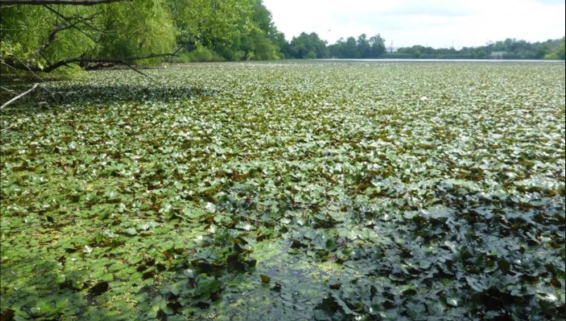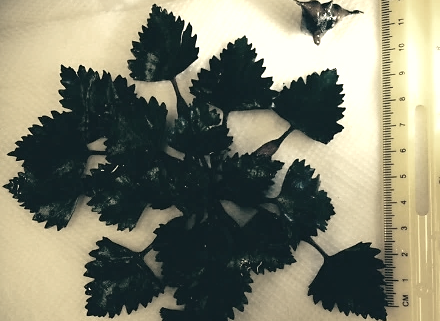Twin Lakes Golf Course, Club House, Ball Room
6209 Union Mill Rd., Clifton VA 20125
Friday, 15 November 2019
10 am – 2 pm
The Fairfax Chapter of Virginia Master Naturalists is facilitating an informational meeting about the invasive water chestnut (Trapa bispinosa).
The water chestnut program (WCP) would be an early detection and rapid response project for naturalists who would like to identify, verify, map and remove this novel species of water chestnut before it becomes established. The focus area is within the Potomac River watershed in Virginia.
This type of water chestnut, discovered by Virginia Game and Inland Fisheries (VGIF) in the tidal Potomac River at Pohick Bay in 2014, is not known to be established elsewhere in the USA. Scientists at the US Geological Survey (USGS) have found that it is spreading, but it is not yet considered widespread, or outside the Potomac Watershed. This is an opportune time to take measures to remove it before it becomes a huge menace in the Potomac River and watershed. Species of water chestnut (Genus, Trapa) are known to spread extensively and be invasive in Virginia and other regions of similar climate. Trapa can quickly grow over the surface of shallow water, completely shade out native submerged aquatic plants, impede water flow, clog irrigation pipes, alter biodiversity, and obstruct recreational boating and swimming.
Come to learn about this water chestnut species and explore options for eradicating it. Virginia Master Naturalists, natural resource managers, pond owners, gardeners, naturalists, invasive species managers, pond management companies, and other interested parties are welcome to attend.
Program is free and open to the public. Please see the agenda and register here. Questions? Email [email protected].
Fairfax Master Naturalists: This program qualifies for Continuing Education credit.



